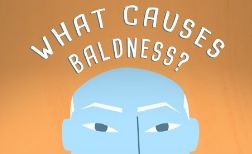
Understanding Bug Bites: Why Some People Are More Prone
 Have you ever wondered why bugs seem to target you more than others? It’s a common concern, and there are several reasons why some individuals may be more susceptible to bug bites than others. Let’s delve into the various factors that contribute to this phenomenon.
Have you ever wondered why bugs seem to target you more than others? It’s a common concern, and there are several reasons why some individuals may be more susceptible to bug bites than others. Let’s delve into the various factors that contribute to this phenomenon.
Bug bites can be caused by a wide range of insects, including mosquitoes, ticks, bed bugs, and ants. Each of these insects has its own unique characteristics and reasons for biting. Understanding these factors can help us better comprehend why some people are more prone to bug bites.
Genetic Factors

One of the primary reasons why some people are more prone to bug bites is genetics. Certain genetic factors can make individuals more attractive to bugs. For instance, people with Type O blood are more likely to be bitten by mosquitoes than those with Type A blood. Additionally, individuals with certain genetic markers may produce more carbon dioxide, which can attract mosquitoes.
Body Odor

Another significant factor is body odor. Certain scents, such as perfumes, lotions, and even sweat, can attract bugs. People with a more potent body odor may be more likely to be bitten. It’s important to note that not all scents are equally attractive to bugs. For example, some studies suggest that the scent of lavender can actually deter mosquitoes.
Carbon Dioxide Emission
Humans emit carbon dioxide, which is a significant attractant for mosquitoes. Individuals who breathe more heavily or have a higher metabolic rate may emit more carbon dioxide, making them more susceptible to mosquito bites. This is why pregnant women, who tend to breathe more heavily, are often more prone to mosquito bites.
Warmth and Moisture
Bugs are attracted to warmth and moisture. People who tend to sweat more or have warm skin may be more likely to be bitten. This is why bugs often target areas of the body that are exposed and prone to sweating, such as the arms, legs, and neck.
Attractiveness to Mosquitoes
Mosquitoes are attracted to certain individuals due to their attractiveness. This includes factors such as body size, skin color, and even the presence of certain bacteria on the skin. For instance, people with darker skin may be more prone to mosquito bites due to the higher concentration of heat and carbon dioxide in their bodies.
Living Environment
The environment in which you live can also play a role in your susceptibility to bug bites. People who live in areas with high bug populations or in close proximity to standing water are more likely to be bitten. Additionally, certain household factors, such as the presence of pets or outdoor furniture, can attract bugs and increase the risk of bites.
Personal Hygiene
Personal hygiene can also impact your risk of bug bites. People who maintain good hygiene practices, such as regularly bathing and using insect repellent, may be less likely to be bitten. Conversely, those who neglect personal hygiene may be more susceptible to bug bites.
Table: Common Bug Bites and Their Causes
| Bug | Common Causes of Bites |
|---|---|
| Mosquitoes | Genetic factors, body odor, carbon dioxide emission, warmth, moisture, attractiveness |
| Ticks | Close proximity to wooded or grassy areas, contact with animals, living environment |
| Bed Bugs | Living in close quarters, exposure to infested areas, personal hygiene |
| Ants | Presence of food or moisture, nesting sites, personal hygiene |
Understanding the various factors that contribute to bug bites can help you take steps to reduce your risk. By addressing genetic factors, maintaining good personal hygiene, and creating a bug-resistant environment, you can minimize your chances of being bitten.



